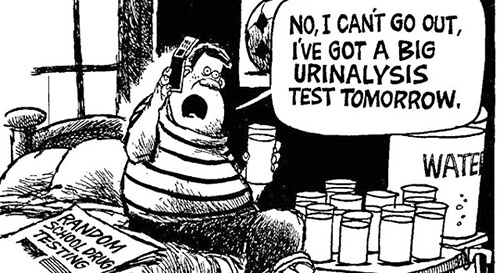


Since last Rosh Hashanah, over 100 frum young people in the New York-New Jersey area have passed away as a result of drug use. It is a plague that is affecting our community in an appalling and unanticipated way. We know from the media that the drug epidemic is widespread. What takes getting used to is that it is oozing through the usually well-insulated walls of our Orthodox Jewish community. While it has been around for as long as most of us can remember, it has never been like this.
When selecting a gap year yeshiva in Israel for her son, a mother consulted his rebbi because her son wanted to go to a certain yeshiva with his friends, and that school had a “bad” reputation. The rebbi told her that he knows the ramim there and her son was not as sheltered as she thought. “Whatever you think they do in Israel vis-à-vis drugs and alcohol, he has seen already at (his school).” We need to accept the reality of these issues and finally begin to deal with them.
We teach our children how to cross a street safely and how to drive a car. Do we also teach them about the dangers of drug abuse and where this might all lead? Do our schools do an adequate job in this area? It may not be a subject that our schools want to address, but it is a reality we must face even in the “best” schools. Our children need to clearly understand the risks and the dangers of drugs.
There are many organizations and therapists who can design and provide educational programs, but sadly we must consider regular drug testing in our schools and yeshivot. Do not deceive yourselves; this scourge is everywhere and is not going away.
We live in a culture that sends mixed messages about drug usage. On the one hand, everyone knows drugs are bad, yet it is glorified in films and on television. Teenagers are prone to risky behavior, and many experiment with drinking alcohol and drug usage. Many parents are unaware of their children’s behavior or are unable or unsure how to navigate the situation with their teenager. Still others display a remarkable hands-off approach, which led a while ago to the police raiding a home where yeshiva teens had gathered for an unsupervised party that included drugs and alcohol.
While it is the parents’ role to supervise and discipline teenagers’ behavior outside of school hours, what should the school do when a student gets drunk or uses drugs? It seems clear that student behavior outside of school affects the culture inside of school.
It seems prudent to provide a deterrent to risky behavior by designing a drug-testing protocol in our schools. Since many schools already have these programs in place, the specific details can be garnered by contacting these schools through LookJed, which just ran a series of discussions on this topic.
How often to test, who sees the results, which grades to test, how to deal with positive results, etc. are all variables to take into consideration.
In addition to the scourge of drugs, including painkillers readily available in many homes, the new drug of choice is alcohol. Do you have any idea how many kids with water bottles are actually chugging vodka or gin? Random alcohol testing might also be a good idea.
Rabbi Elisa Paul writes in LookJed Digest: “Anyone who knows chronic substance abusers will tell you they often share one trait in common, namely consistent dishonesty until confronted by the painful truth of the consequences of their actions. Parents of substance abusing teens often can’t or won’t deal with the magnitude of the problem their child is facing. This was best expressed in a famous movie line when a teen was asked how he gets away with dealing drugs when he has such strict parents; the teen simply responded, ‘Never underestimate the power of denial.’ ”
The reasons for drug and alcohol abuse are related to the many issues facing teens today. Life today is complicated. Every teen needs nurturing. Sometimes they fall in between the cracks. They are the future and we must protect them.
By Wallace Greene
Rabbi Dr. Wallace Greene was a school principal for many years and served as the director of Jewish Educational Services for northern New Jersey for over a decade.











